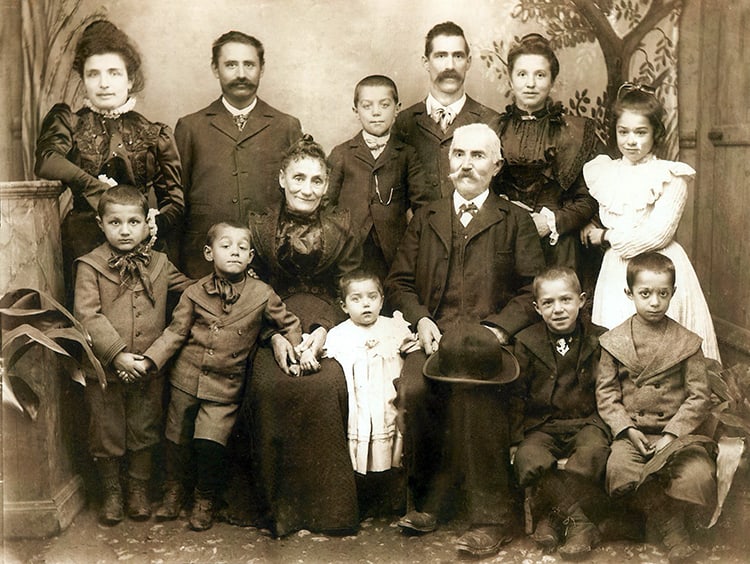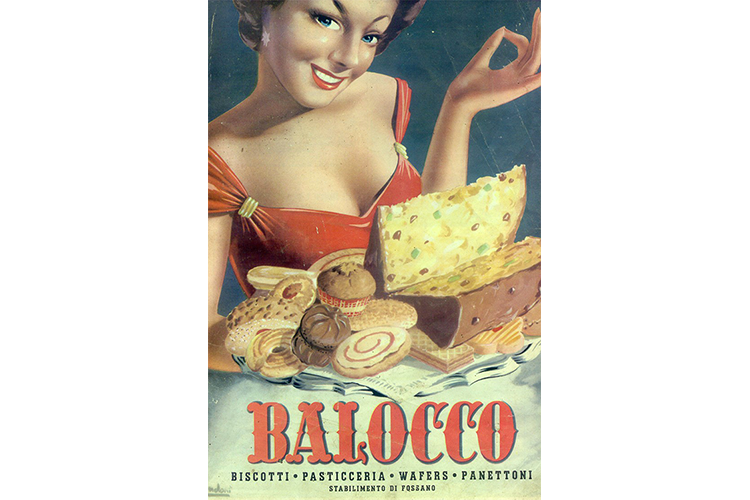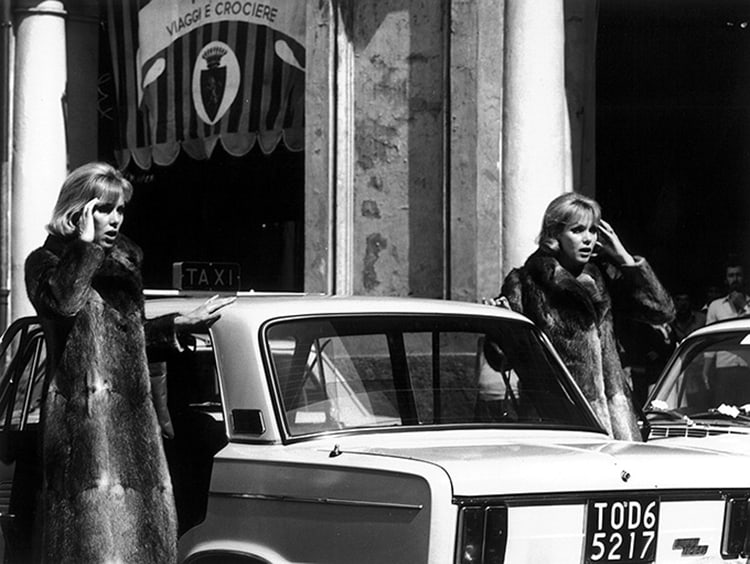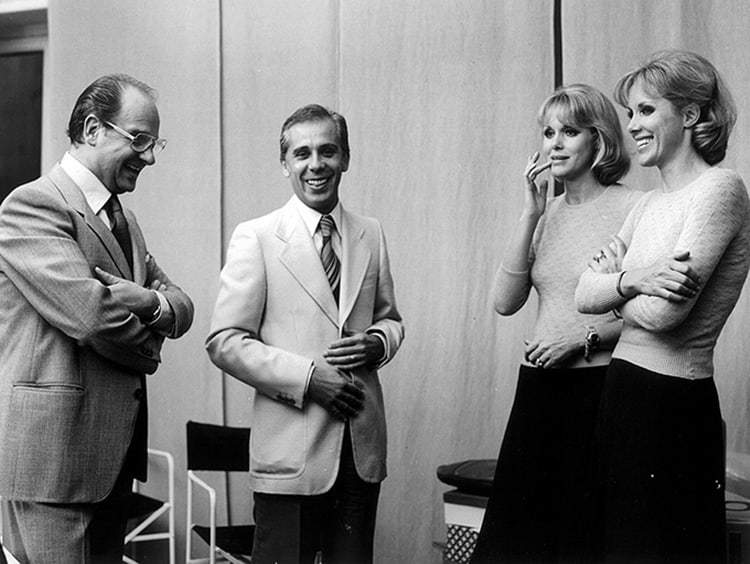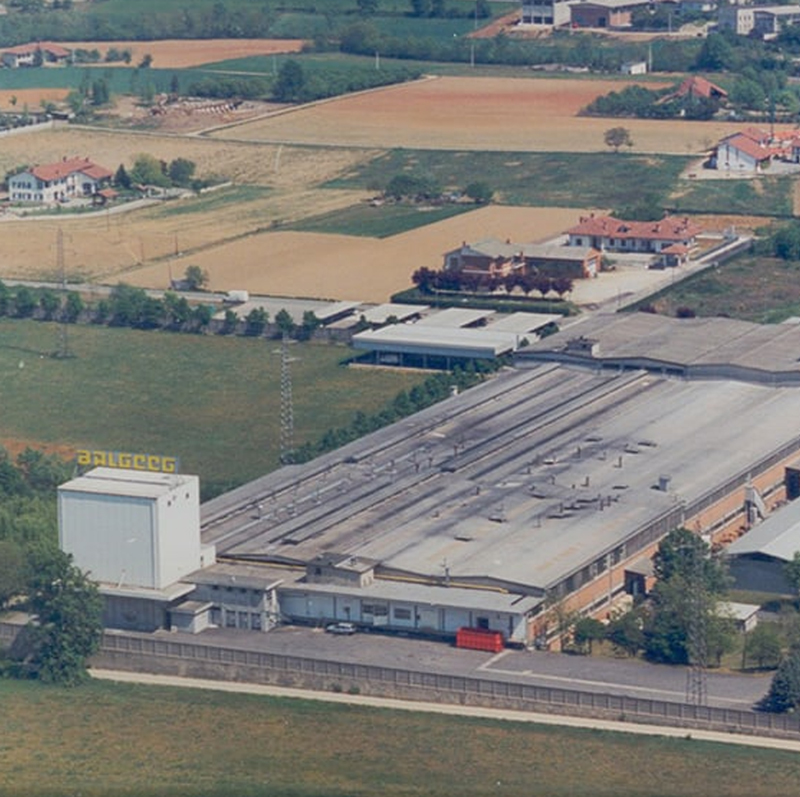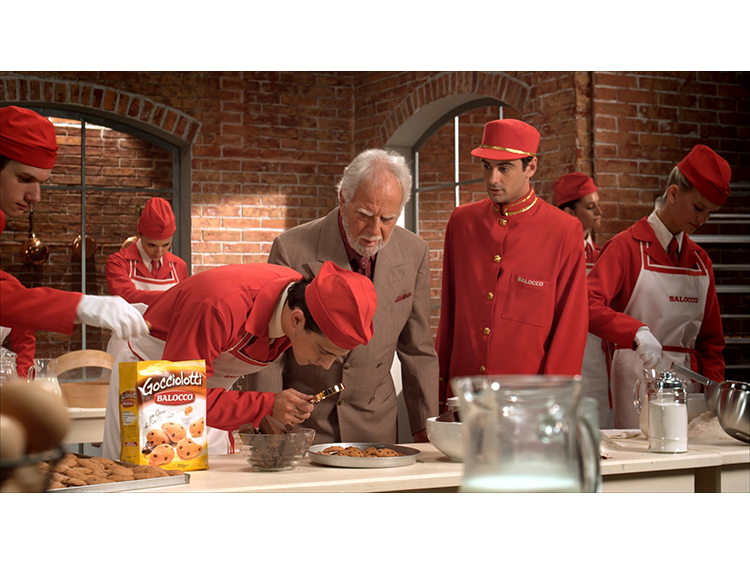Francesco Antonio Balocco was born in Narzole in 1903. He was the son of a bright store keeper who owned a sweets and grocery shop on the main street of the town.
At eleven years old Francesco Antonio started his internship as a pastry chef, which led him to work in some of the historical bakeries of Piedmont. These included some of the most well-known from the turn of the century: in Bra, at Convesso Bakery, in Turin, at Fréjus Bakery and the historical De Coster Confectionery.
In 1923 Francesco Antonio launched a pastry shop at Via Marconi in Fossano with his brother Alfredo, who in 1927 moved to Ventimiglia. Francesco Antonio took over a pastry shop at Piazza Castello in Fossano, where he made use of his many years of training, attracting a growing number of clients.
In January 1930 he married Lucia Cussino, who tragically died the same year while giving birth to their son Aldo. .
In 1933, Francesco Antonio established his second pastry shop: located at the end of the central Via Roma, this new shop decorated in Empire style exuded a stylish and modern charm.
Francesco Antonio and his son Aldo: the FAMILY TRADITION begins.
During World War II as both shops were destroyed by the Black shirts, Francesco Antonio and Aldo were forced to flee to the Langhe countryside. When the war was over, both the workshop and the two shops were rebuilt and opened again shortly after.
The business was busy and they started to produce biscuits to be sold in bulk.
In 1949, they decided to expand their business by moving the production to a 5,000 sq. m factory. The new plant had 30 employees.
In the fifties, the first ovens for Panettone production were introduced and the first attempts were made with sourdough and icing with hazelnuts, sugar granules, and roasted almonds for the Panettone. Thus the Mandorlato Balocco was born and immediately was a success.
In the early sixties, a sales network was developed, and in 1964 a 70, 000 sq. m plot of land was purchased in the Santa Lucia area in Fossano where the new factory would be built. In 1969 the production was moved in this plot, and the headquarters can still be found there.
In the wake of Mandorlato’s success and pushed by the will of growing and establishing a reputation at a national level, Aldo Balocco decided to focus on advertisement. The first commercial in the annals of Balocco was aired on the 1st December 1975 on Carosello, the only advertising space available in Italian television at the time.
Aldo Balocco decided to entrust the ad campaign of his Mandorlato to the most famous showgirls at the time: the twins Alice and Ellen Kessler. Shortly, Mandorlato arrived into Italians’ homes.
Heather Parisi, icon of Italian television in the eighties, TESTIMONIAL MANDORLATO BALOCCO.
Mandorlato’s success, which in the meantime had become Balocco’s flagship, continued thanks to a fortunate ad campaign, featuring Heather Parisi.
CThe company continued to grow steadily: in 1987 the production area reached 32,000 sq. m, the sales volume reached € 14 million (from Lire equivalent) and the employee number grew to 135.
In 1990, Alessandra and Alberto joined the company: the third generation of the Balocco family. While in 1994, the company founder Francesco Antonio Balocco died aged 91.
The generational change was a contributing factor in making Balocco one of the most successful Italian business models. Thanks to strong family bonds, the talent for innovation, and the ability to join the increasingly globalised markets. The transition occurred in a virtuous way, and the two generations continue to work seamlessly side by side.
In 2003 the production area reached 44.000 mq and Balocco introduced his breakfast shortbreads to the market.
In 2006 the ad campaign “Mr. Balocco” was promoted. Set in a factory from another time and with a magical atmosphere showing the caring and passionate dedication the Balocco family has for their products. It was a prosperous choice that led to a growth of volume, turnover and market shares.
On 2nd June 2010 the president of the Italian Republic Giorgio Napolitano awarded Aldo Balocco with the Order of Merit for Labour: Balocco is an Italian flagship and a beacon for local economy.
From 2010, the communication campaign received two important sponsorships: the brand Balocco appeared on the Juventus FC jerseys during the Serie A Tim championship in 2010/11 and 2011/12, and from 2013 to 2015 on the Giro d’Italia’s Pink Jersey.
